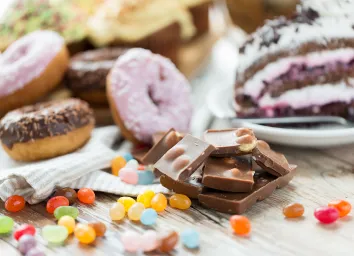27 Things You Must Know About Your Health by 27
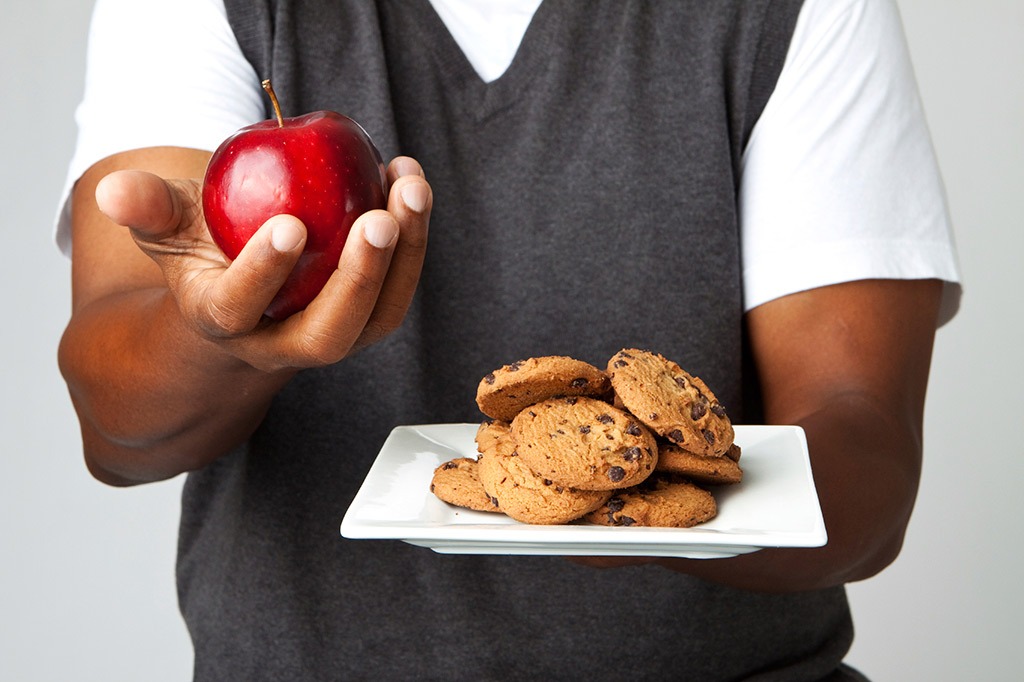
Have you ever wondered when you’re going to feel like a “real” grown up? Have your body goals become harder to reach over the past few years? Have you recently gotten the boot from your parents’ insurance plan? Well, then congrats—you’ve finally made it to your mid-twenties! And as you’ve probably figured out by now, navigating the winding roads of adulthood—with good health and a flat belly, no less—isn’t as easy as you thought it would be. And Waze can’t exactly show you the fastest route, either.
Although no one’s expecting you to have it totally together all the time, there are still some things you should know about weight loss, health, and wellness by the time you reach your 27th birthday. Read on to discover the must-know adages to stay stress-free, be healthy, and keep a fit figure.
Pick Quality Over Quantity—Always
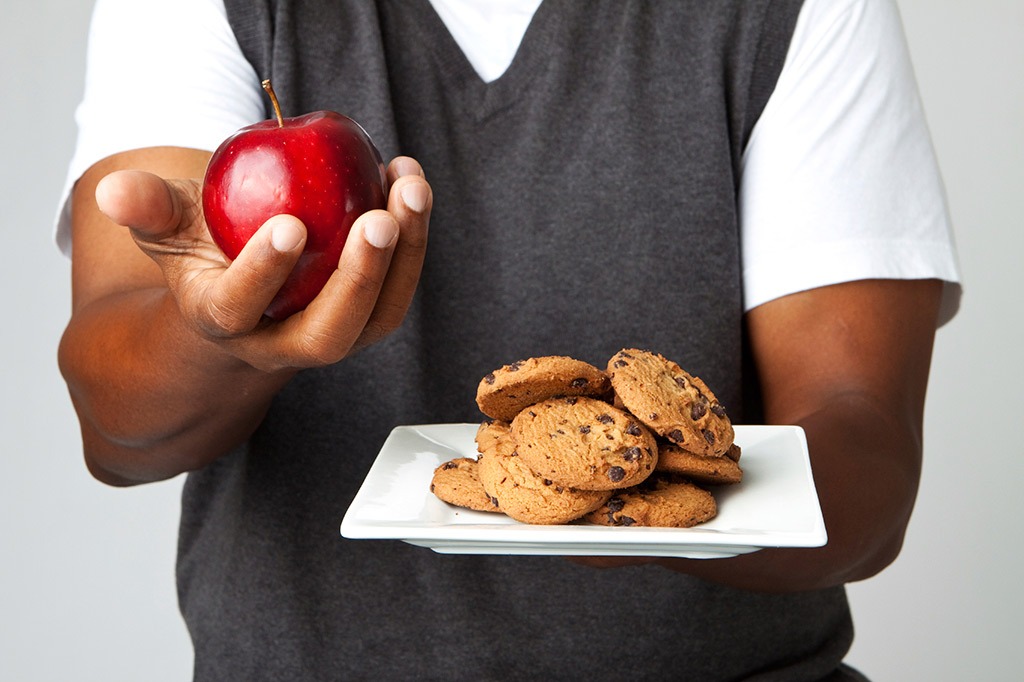
When it comes to both friends and calories, quality and quantity are both important. However, if you can only pick one, go with the former. The reason: Your body won’t process the calories from a slice of cake or a can of soda in the same way it would a nutritious whole-food meal or snack. Since junk food lacks nutrients (like fiber to keep hunger at bay), it can increase hunger and ultimately cause weight gain.
Too Much Caffeine Can Make You Fat
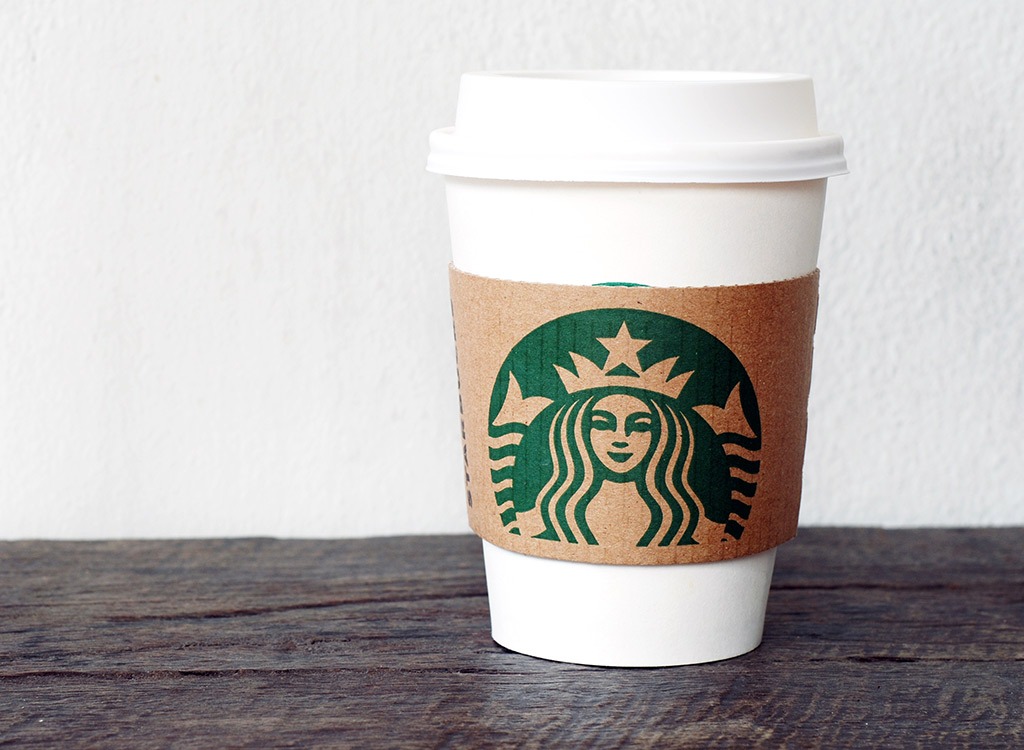
We get it, you love coffee and facing your monster boss without it just isn’t happening. Though a cup or two of the stuff can be beneficial for your health (assuming you drink it black), guzzling down too much can do more than make you twerk like Miley—it can make you gain weight. According to a study in the Journal of Agricultural and Food Chemistry too much caffeine can lead to insulin resistance and increased fat storage. To ride out the afternoon slump without doing damage to your waistline, skip the second cup of java and reach for a cup of caffeinated green tea instead. It’s packed with a metabolism-boosting nutrient called EGCG, and it’s such an incredible brew that we created an entire diet plan around it called The 7-Day Flat-Belly Tea Cleanse!
It’s Okay To Buy Embarrassing Health Products

At one point or another, you’re going to have to gather up the confidence to buy those embarrassing products—and now is the time. With the rise of online shopping services, it’s becoming easier to purchase items like jumbo tampons, not-jumbo condoms, or at-home pregnancy tests in the privacy of your own home. But guess what? That still doesn’t make you less embarrassed. A study in the Journal of Consumer Psychology found that even though you’re alone, the act of purchasing these products still triggers embarrassment because you’re judging yourself. Not to fear: Another study found that if you also buy a product that is neutral (like an apple) alongside the one that makes you blush, your embarrassment is minimized.
You Need Health Insurance

After your 21st birthday, there are only a couple birthdays left that come with a bonus: At 25 you can rent a car in any state, and at 26, you have to get your own health coverage! If a parent’s health insurance plan covers dependents, you usually can stay on their plan until you turn 26. But once that clock strikes midnight, you might have until the end of the year or until the end of the month to get your own coverage in order. If you don’t, you’ll have to pay a fee of either 2.5 percent of household income or $695 (whichever is higher). Learn more at
Healthcare.gov.
You Can’t Undo a Bad Diet

Just because you hit the gym on the reg, doesn’t mean you can pound sugary caramel macchiatos and greasy McDonald’s fries. As our bodies age, Lisa Moskovitz, R.D. explains, “Exercise still has plenty of positive benefits, but weight loss is often not one of them. When it comes to dropping pounds, a healthy diet and moderate exercise—both weight training and cardio—are key.” Focus more on a proper nutritional diet and fewer cheat meals, rather than counting on your body to magically bounce back after each fast food bender. Because, soon, it won’t be able to.
Mental Health Days Are a Must
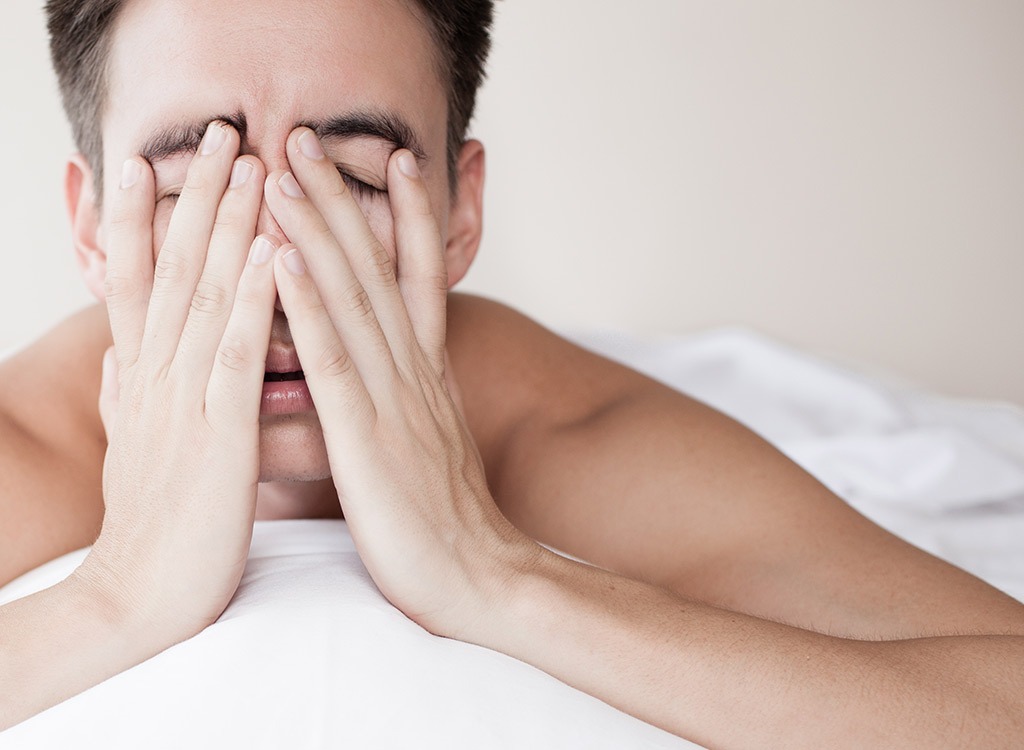
Work, social life, dating, marriage(?!)—life in your mid- to late-twenties can be pretty draining. So, don’t let your job make you fat. Excess stress can lead to many adverse health effects, from cold sores to a decreased desire to do anything active in your downtime. Be sure to factor in a mental health day once in a while to properly de-stress and reboot. Go for a hike, read a book, or munch on some strawberries. These red berries are high in vitamin C, the antioxidant that has been proven to decrease the stress hormone cortisol and to help return blood pressure to normal.
You Can’t Survive Off Pizza

Yes, we know it’s much easier to order this cheap, utensil-less, cheesy grub after a late night at work than it is to whip something up in your apartment’s tiny kitchen. But if your 18-year-old body couldn’t handle the late night pizza (hello, Freshman 15), your 27-year-old self will struggle even more. It’s time you learn to cook, and it’s certainly no surprise that research suggests home-cooked meals are more nutritious than restaurant fare. Start slowly by trying a new recipe every week; and for those of you who still have trouble keeping your toast from burning, check out our fast and easy dinner recipes for weight loss. You’ll be impressing your friends and family with your new-found culinary prowess—and shedding pounds in no time.
Food Labels Mean Almost Nothing

From marketing claims of “Zero Grams of Trans Fat” to “All Natural,” food labels aren’t always what they say they are. Since certain regulations are rather loose—i.e. a product may contain up to 0.5 grams of trans fat, sugar, or any other macronutrient, and manufacturers can still claim the food has 0 grams—the labels aren’t always that informative. Look out for these tricks that manufacturers use to convince customers that their food is healthy. Be more aware of the other names that bad ingredients go by on nutrition labels. (Trans fat = partially hydrogenated oils. Sugar = anything that ends in -ose.)
Exercise Can Be Your Savior

As the saying goes: The best time to start was yesterday, but the next best time to start is now. When you’re 45 and have a list of physical and health issues, you’ll wonder why you didn’t start taking care of yourself sooner. Don’t let this happen to you. Establish a good exercise routine when you have the time now—because those other facets of life will only get more demanding.
Oral Health Matters

Guess what? Flossing and brushing your teeth doesn’t only make your breath smell great for a date or help you avoid cavities, it also goes hand-in-hand with good nutritional health. Added sugars like sucrose, glucose, and fructose that represent the primary causes of cavities in industrialized countries, are also the main culprits to increasing diagnoses of obesity and a slew of diseases including high blood pressure, diabetes, and heart disease.
Using Drugs & Alcohol “Socially” Still Counts

Using the excuse that you’re only a “social smoker” or “social drinker” stopped working after you graduated from college. In the real world, yes, it’s ok to have a drink once in awhile, but now you’re old enough to know that getting sloshed with coworkers doesn’t make you more popular. It does, however, make life much harder the next day—scientists have found that hangovers tend to get worse as we get older and could disrupt your weight loss goals. While we’re not saying you have to cut out drinking completely, you might think twice before downing that second glass of wine with friends while watching The Bachelor after seeing these 14 things that happen when your body quits alcohol.
Metabolism Slows With Age

Remember the days when you could drink champagne or grab a cheeseburger, and you could just go to the gym afterward to lose weight? Well, those days are long gone. Unfortunately, as the body ages, your metabolism also starts to slow down. Research has shown that this deceleration happens because your mitochondria (the powerhouses of your cells) doesn’t function as efficiently as you get older, and it becomes more likely that your body can’t use the energy that we get from food properly. That’s why you need to focus on both aspects of wellness—eating healthy and working out—to stay on track.
Healthy Doesn’t = Expensive
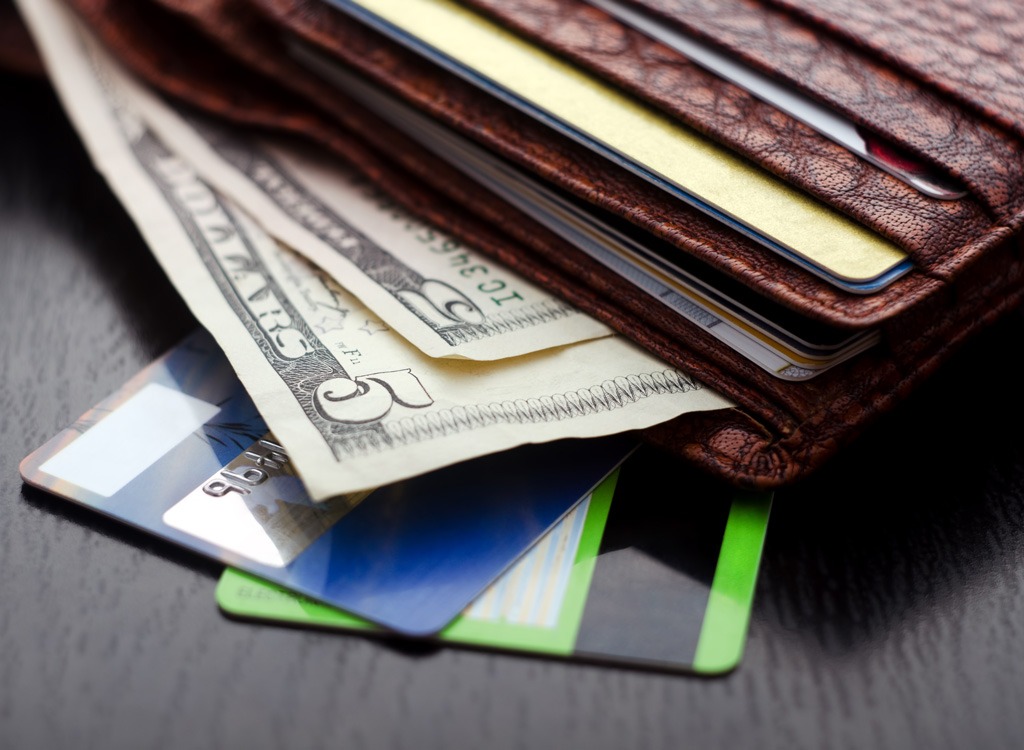
With the rise of superfoods, health food stores, and farmers’ markets, it seems like eating well has never been so expensive. In fact, over the past two years, the cost of healthy foods like vegetables, meat, and fruit has increased, while junk foods’ prices decreased. Even though that doesn’t sound good for our wallets, you also need to factor in the long-term costs of bad eating habits, which include heart disease, cancer, high blood pressure, and high cholesterol. Ultimately, your best choice is to eat the most nutritionally-dense foods your money can buy, and we found the best ways to do that. Buy certain items in bulk, look for seasonal foods, and next time you head to the grocery store, check out our healthiest cheap foods in America.
Snacks Can Keep You Skinny
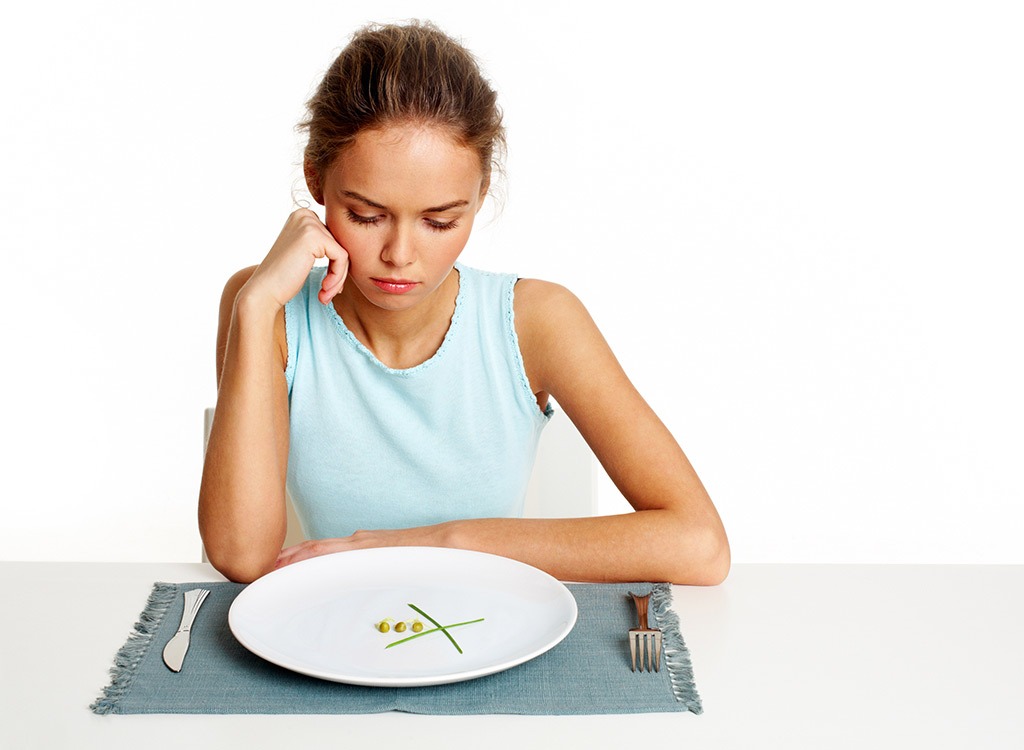
“Under-fueling is just as risky as over-fueling,” explains Carolyn Brown, MS, RD. Lisa Moskovitz, RD, CDN agrees: “In an attempt for quick, noticeable weight loss, many people wrongfully believe that eating as few calories as possible is the best solution. Not only can this lead to numerous nutritional deficiencies as the body is getting less food overall, but it can also have the opposite effect on weight loss.” Don’t try to get over that midday hump alone. Instead of cutting calories, which can cause your body to lose muscle mass and decrease the rate of your metabolism, grab a healthy treat like one of these high protein snacks to keep your blood sugar levels stable and your metabolism going.
You Have to Exercise Your Brain

Research has consistently shown that aging is associated with lower levels of performance on a variety of cognitive measures. Not to fear, keeping a keen mind isn’t as hard as you might think. In fact, to exercise your brain, all you have to do is exercise your body! A study published in Neurobiology of Learning and Memory found that running helps protect the hippocampus, the part of the brain responsible for learning and memory, from stress-related cognitive impairment.
Know Your Way Around The Weight Room

No matter what your weight, age, or gender, people who exercise daily feel better about their appearance than those who don’t. With age comes experience, and by 27, you’ve probably figured out which kind of exercise gets you most excited to break a sweat. And if not, now’s the time to find out! Whether it’s lifting weights, working the machines, or doing floor work, find a type of exercise that fits with your body goals and do it regularly! Once you get to the later half of your 30s, you start losing muscle mass, so it’s especially important to exercise now. And when you’re at the gym, be sure to finish reps and complete your full workout routine; if you don’t, you’ll only be hurting your end results. It doesn’t matter if it takes you longer than it did in your teens, or if you need to rest in between exercises, what matters is that you complete the full workout.
You Can Sleep When You’re Dead— But Doing It Now Is Better

It’s no surprise that the average American doesn’t get enough sleep. But did you know that when you don’t sleep enough, it can lead to weight gain? If you have an erratic work schedule or tend to sleep in on weekends, you may be at risk for unnecessary weight gain by disrupting your natural metabolism cycle. We already know that metabolism slows with age, so don’t let the lack of sleep cut you down even more. Set an alarm clock for the same time each day, even on weekends or days off. It’ll help you sleep better by maintaining your body’s internal clock.
Your Types of Friends Matter

Surrounding yourself with good people isn’t just beneficial for your sanity, it can also help keep you healthy! When a friend becomes obese, it ups your chance of obesity by up to 57 percent, according to research from the New England Journal of Medicine. This is most likely due to your exposure to and the influence from social norms set by someone you’re close with. If your friend has put on some extra pounds, be the one to suggest healthy activities that you can do together and make sure to avoid letting your friend’s out-of-control cravings dictate the meal. Also, keep and make friends who share your flat-belly lifestyle habits, whether it be going to the gym or cooking up a healthy meal at home.
Carbs Aren’t the Enemy
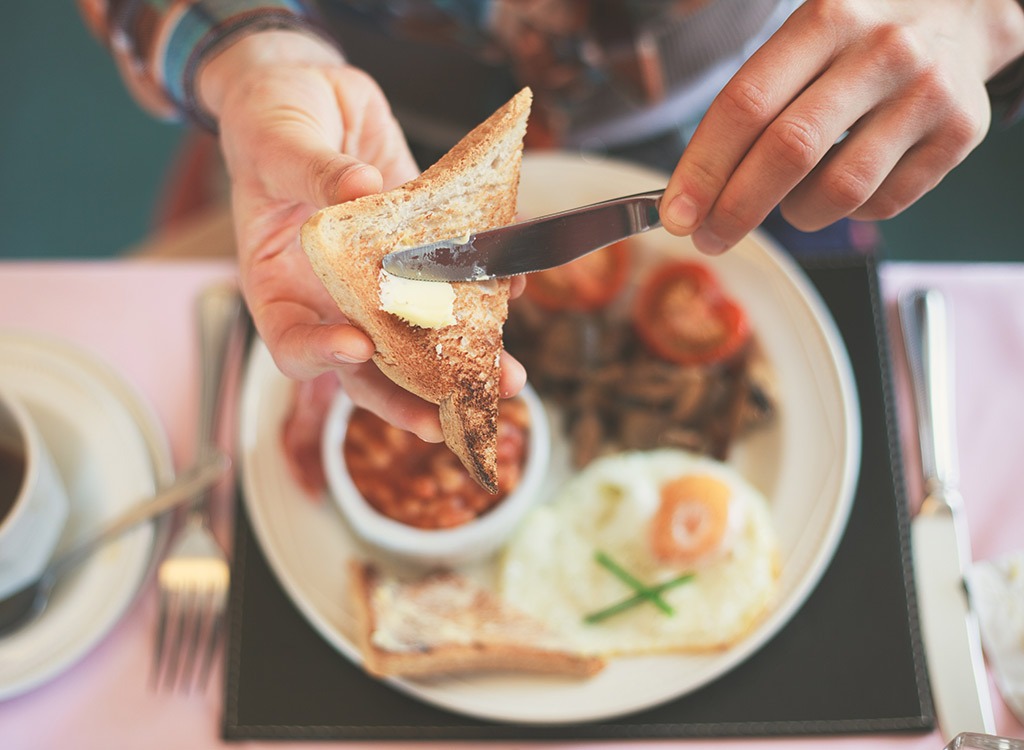
But sugar is. Everything we thought we knew about heart health and nutrition led us to constantly seek out “low-fat” and then “low-carb” foods, but experts recently discovered the real culprit could be sugar. Scientists have linked the amount of sugar in one’s diet with his or her risk of obesity, weight gain, and other health problems including heart disease. A study in the Journal of the American Medical Association found that people who ate between 17 and 21 percent of their calories from added sugar compared to those who consumed 8 percent or less had a 38 percent higher risk of dying from heart disease. And the U.S. Department of Agriculture and the Department of Health and Human Services are taking note. In January 2016, the USDA and HHS updated their Dietary Guidelines to set a strict limit for Americans to eat and drink less than 10 percent of their calories from added sugars (that’s about 12.5 teaspoons, or 50 grams, for someone with a 2,000-calorie diet) each day. Right now, those in their late twenties consume the third highest amount of added sugar a day—averaging over 77 grams. Check out our exclusive report that identifies restaurant items that are 45+ grams: 23 restaurant foods with crazy-high amounts of sugar!
You Need An Emergency Health Fund

Saving can be difficult because it does nothing for our happiness today, but in the end, savings can provide us with enormous relief and security down the road. A recent survey found that more than 50 percent of millennials have less than $1,000 in personal savings, and only 1 in 3 millennials has enough money saved for a single emergency room visit. Leaving yourself without a cushion can mean that just one unexpected expense or time off from work may send you into debt that follows you for years to come. While your twenties are a great time to network, socialize, and advance in the workplace, it’s also the easiest time to put away cash—because, you know, more expensive things (uh, like having kids!) can happen in your 30s, if not sooner. Prioritizing your savings is just one of our 30 ways to be happier this year.
Hunger is Often Mistaken for Thirst

Next time you’re hankering for a snack, knock back a cup of water first. Research suggests that 6 out of 10 times, people will mistake hunger for thirst. Just sipping on H2O is the solution to quelling your hunger pangs and, ultimately, helping you slim down. In fact, preloading meals with water can shave hundreds of calories from your daily intake. A study published in Obesity found that drinking two cups of water before eating led people to consume 75 to 90 fewer calories over the course of a meal. This could be because water is filling, but may also be due to displacing calories otherwise spent on calorie-laden beverages like soda or alcohol.
Too Much Tech Can Harm Your Health

And no, we’re not talking about that heart-stopping panic that sets in when you see a “Low Battery” warning with no outlet in sight. According to recent research, the blue light emitted from electronic devices like your computer, phone, tablet or LED television can impair the production of the sleep hormone, melatonin, which negatively affects sleep quality and even weight loss. And the tech-induced problems don’t stop there. A study published in Ergonomics found that the combination of people keeping their fingers hovering above their touch-screen keyboard and the fact that users tend to look down at their phone or tablet screen can lead to shoulder strain and pain by forcing the neck to over-flex and arms to tense up. We know it sounds old-fashioned, but try to spice up your morning commute by reading a book rather than scrolling through your Instagram feed.
Diet Foods Are the Devil

When work life takes over your personal life, and you start to see the pounds rack up, many people in their 20s turn to diet shakes, bars, and boxed meals to lose weight. While they might work in the short-term, these foods are highly processed, filled with sugar, sodium and chemicals, and provide little nutrition. “Once we’re in our 30s, insulin production is more sensitive to sugar and processed food, and our bodies tack those calories on as fat more readily,” says Kristin Reisinger, MS, RD, CSSD. “Stick with clean, healthy foods to keep your metabolism running strong and energy levels high.” And for the millionth time, stop drinking soda and diet soda.
Scales Aren’t Always Reliable
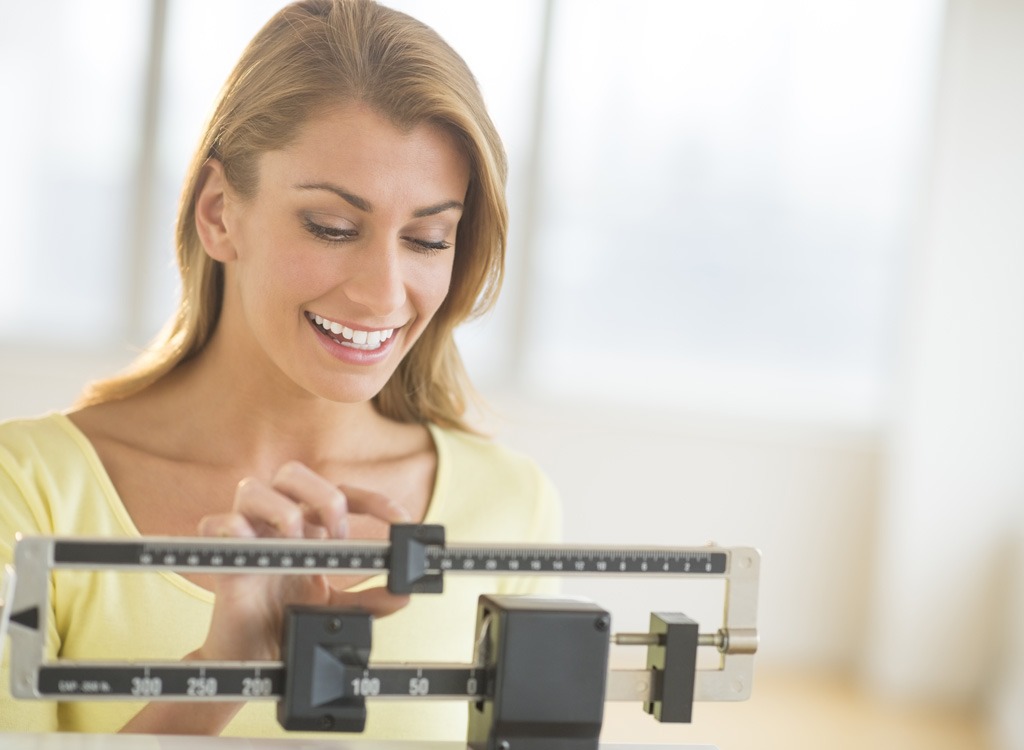
“While stepping on the scale can be a good measure of weight maintenance in your teens and twenties, things aren’t as simple once you’re older,” says Marisa Moore, MBA, RDN, LD. “As we age, we tend to lose muscle and store fat, but the numbers on a scale won’t necessarily reflect that right away.” Therefore, while everything might seem hunky-dory because you’re maintaining the same weight, you might be gaining fat and losing muscle. Moore suggests using a pair of jeans rather than a scale: “Snug jeans are an indication that you should watch your diet and incorporate strength training into your fitness routine. This will help your body hold on to more muscle mass and keep your metabolic rate from plummeting.” And for the right fuel to prep your body for that training, check out these protein shake recipes.
Diet Fads Don’t Work
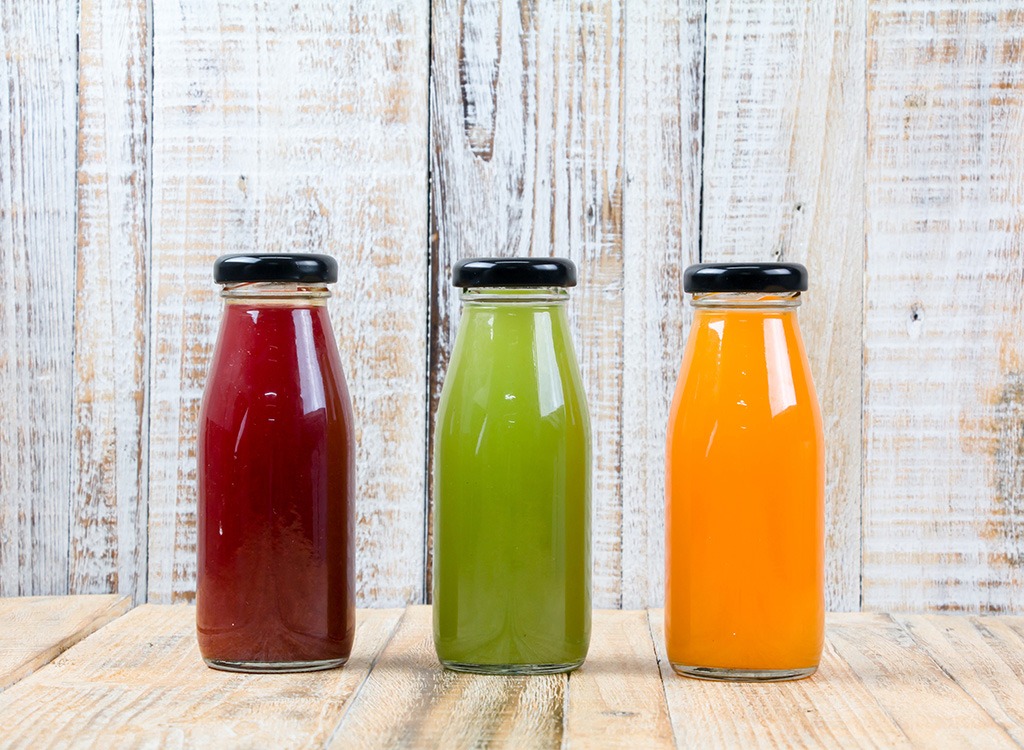
A juice cleanse, going gluten-free, eating low-carb… The latest diet may be all the rage, but that doesn’t make it the best way for you to shed pounds. Elisa Zied, MS, RDN, CDN, explains that when you cut out nutrients like carbs or dairy, it may help you cut calories, “but it can also set you up for lower nutrient intake, which is increasingly hard on the body as it ages.” If your motivation for jumping on the latest food-eliminating diet bandwagon is weight loss, focus on reducing portions and eating nutrient-dense versions of shunned foods, instead. Rather than eliminating carbs altogether, minimize your usual portions—and stick to whole grains over refined varieties, which cause spikes in insulin levels and lead to overeating and weight gain.
You Can’t Control the Future

Unless you have psychic powers, there’s no way to anticipate the exact path you’ll follow in the future. Don’t stress yourself out by trying to plan too far in advance when it could change in a heartbeat. What you can control is what’s going on in your life now. Set goals, work out, eat right and practice a healthy lifestyle. And on the days that don’t go as planned? Just let it go. Think back on what you have accomplished so far and get back on track the next day.
Your Health is Everything

Good health is the foundation for enjoying everything else in life. Taking care of your body is the most important thing to do before your 30s because it will allow you to be free, able, and happy to do whatever you please, whether that be traveling, spending time with friends and family, working out, or just relaxing at home.

